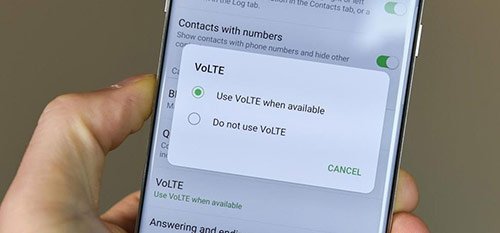 Operators’ revenue from mobile voice traffic is declining sharply as subscribers adopt over-the-top (OTT) applications like Skype and Viber. VoLTE represents an opportunity for operators to retain Voice revenue and compete more effectively by improving quality, incorporating multimedia features and escaping the costs and limitations of running circuit-switched voice networks.
Operators’ revenue from mobile voice traffic is declining sharply as subscribers adopt over-the-top (OTT) applications like Skype and Viber. VoLTE represents an opportunity for operators to retain Voice revenue and compete more effectively by improving quality, incorporating multimedia features and escaping the costs and limitations of running circuit-switched voice networks.
The ability to provide consistent VoLTE service across borders presents operators an opportunity to gain an early advantage with current and prospective subscribers. However, multiple challenges remain, starting with a revenue- impacting decision operators must make in choosing the appropriate VoLTE roaming model for their business.
The Disruption of VoLTE Roaming Models
Operators are uncertain about which roaming model to embrace.* The two models, both approved by GSMA, are Local Break-Out (LBO) and S8 Home Routed (S8HR). Internal departments are often unaligned as they debate trade-offs between time-to-market and regional call quality. The main differences between the models are the way they route calls. In S8HR, voice is treated as data and is charged using a data business model, while LBO maintains the existing voice business model.
In the LBO model, the current international Voice revenue is preserved as the sending party pays the receiving-party termination rates (MTR’s). In the case of S8HR, the voice traffic is now part of the total S8 data traffic; the majority of calls in from the subscriber in the visited network end up at home. International carriers do not pay MTR’s to the receiving party in the S8 HR model. This results in a loss of revenues for the home operator, most likely in its interconnect department. This can have significant financial impact for countries and networks.
The Technical Gaps of VoLTE Roaming Models
iBasis’ S8HR trials revealed several technical gaps that are acknowledged by GSMA and 3GPP. The first challenge, from the home network point of view, is local regulatory compliance, especially if the visited network has a different emergency call support structure.
The second gap relates to call quality. When the end-user makes a call that needs to be terminated close to the visited network, the call “trombones” back to the home network, which could be very far away, impacting the call quality, as we observed.
Because some operators will implement S8HR and others LBO, there will be interoperability problems between the models. Today, there is no interoperability between them, which can result in lack of scalability and loss of revenue.
During our trials we also observed the increased complexity of S8HR, which requires number translation by the home network for special format local numbers within the visited network, as well as identification of the visited network needed for end-user billing.
There are also several challenges to be addressed by the visited network side, such as lawful intercept support and overcoming the lack of service awareness. Because voice is treated as data, the visited network lacks visibility, which is critical for service trouble shooting, fraud prevention and voice KPI measurements.
The IPX Hub Solves Roaming Implementation Challenges
The iBasis IPX acts as a hub between different operators helping to solve interoperability issues and mediating between roaming models. In the case of a regional call, the IPX can act on behalf of the home operator and break-out the call close to the visited network to ensure high quality voice service.
Ovum expects IPX providers to have an increasing role in helping operators understand the implications of VoLTE roaming models, helping them to make better-informed decisions and address implementation challenges.
About iBasis
A wholly-owned KPN company, iBasis is a leading international voice carrier and a provider of data services and solutions for mobile operators. The company offers a comprehensive portfolio of voice termination services and data services, including messaging, signaling and roaming, for many of the world’s largest fixed and mobile operators, as well as “over-the-top” and voice-over-broadband service providers. iBasis customers include KPN and its mobile operators and more than 1,000 other providers around the world. The company can be reached at its worldwide headquarters in Lexington, Mass., USA at +1 781-430-7500 or at www.ibasis.com.
*Ovum Survey, Confusion Reigns over VoLTE, ViLTE and RCS Roaming, March 2016
Article by Joseph Ajay, CTO at iBasis


